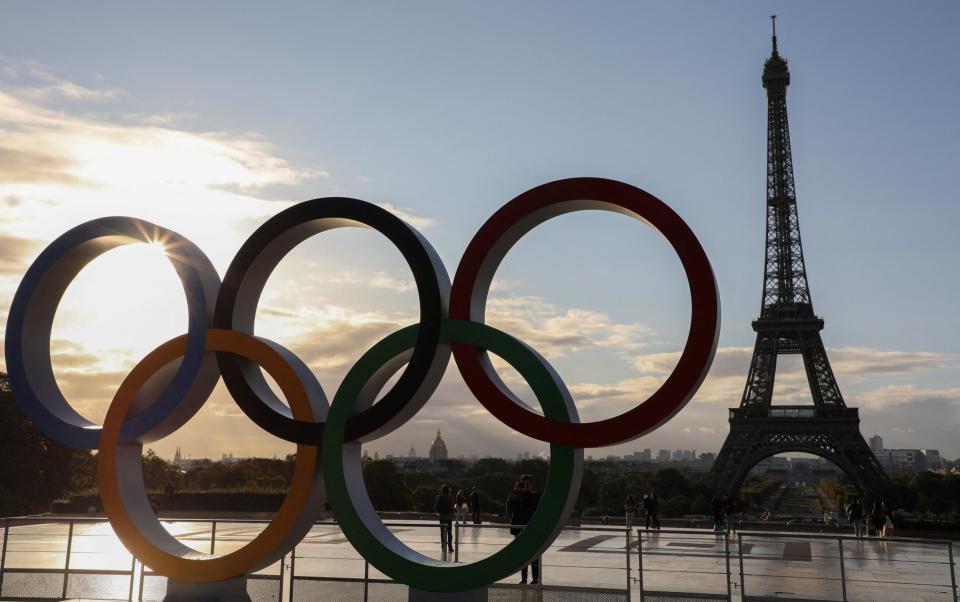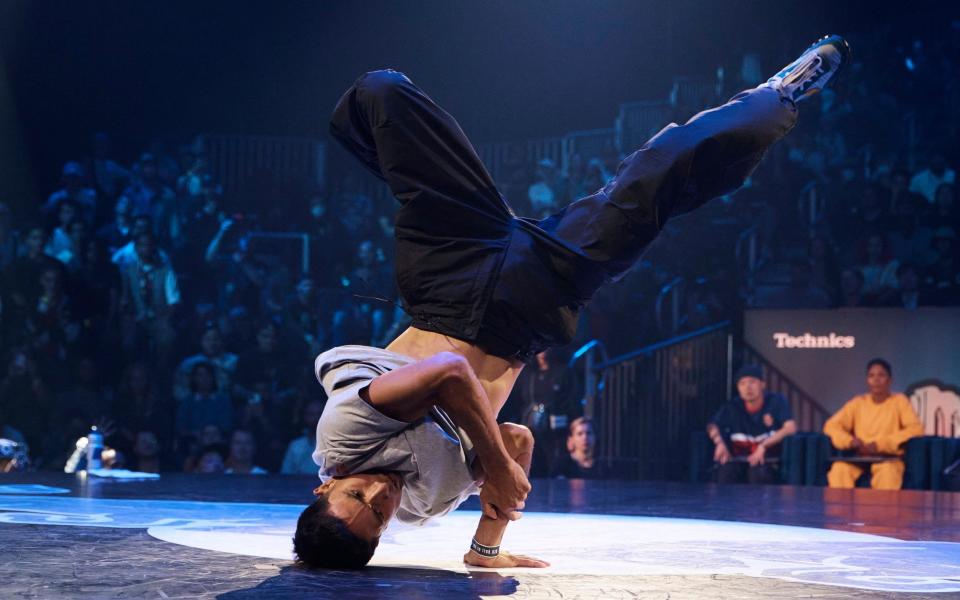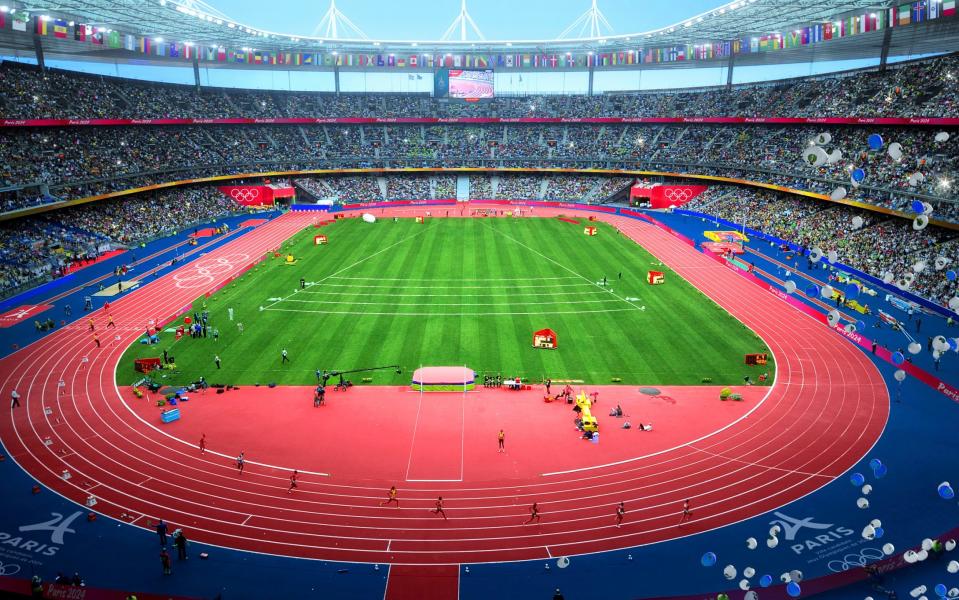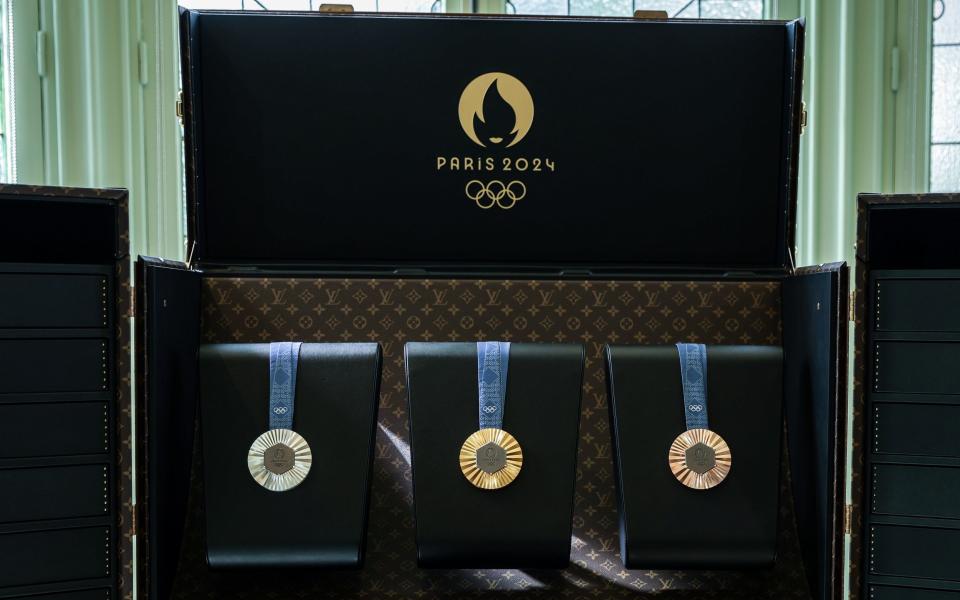When does the Olympics finish? Your ultimate guide


The 2024 Olympics got under way in Paris, France on July 24. It is the third time the French capital has hosted the Summer Games, the first being in 1900 and the second in 1924, exactly 100 years ago.
For the first time, this year’s Paris Olympics will have an equal number of male and female athletes, and the same number of events for all.
You can take a look at the full day-by-day schedule here. Telegraph Sport has also published a guide to the British athletes competing at this summer’s Games, plus Team GB’s kit for Paris.
Skip to:
Do you plan to attend the Olympics in Paris this summer? Let us know what you are most excited about in the comments section below.
When does the 2024 Paris Olympics start and end?
The 33rd Summer Olympic Games will run from Wednesday July 24, until Sunday, August 11 in Paris.
The Paris Olympics will end on August 11, with the traditional closing ceremony. There will also be 13 gold medals up for grabs on the final day.

When was the 2024 Paris Olympics opening ceremony?
The Paris Olympics opening ceremony took place on Friday, July 26. Celine Dion made a comeback to the live stage on Friday singing Edith Piaf’s classic L’Hymne A l’Amour to close the ceremony. Several events have already started before the opening ceremony: archery, football, rugby sevens and handball.
How to watch the 2024 Paris Olympics
There are several ways of watching the Olympics. Warner Bros. Discovery, who own Eurosport and the streaming service Discovery+, own the media rights in Europe although the BBC will still be covering the big moments across its channels. You can stream the Olympics online on the Discovery+, which is the only place to watch every moment live, BBC iPlayer app and on the BBC website. Alternatively Telegraph Sport will be running live blogs on all the key sporting events.
Team GB athletes
Team GB have announced a 327-strong travelling party of athletes for Paris 2024, the ninth-largest team for the Games. For the second successive Olympics, women (174) will outnumber men (153) on the British team.
The full list of those Team GB selected athletes can be found here.
Predicted 2024 Paris Olympics medal table

The United States are expected to top the Olympics medal table again, with Great Britain targeting a record number of podiums
Read more details on Team GB’s predicted medal performance in Paris.
Can Russia compete in the 2024 Paris Olympics?
Russian (and Belarusian) athlete cannot compete under their national flag or for their national Olympic committee. Instead any athletes from the two countries must compete as an individual neutral athlete, and only provided they meet eligibility criteria imposed by the International Olympic Committee (IOC).
What are the Team GB Paris kits?
Team GB have played it safe with their Adidas kits for Paris. After a backlash over the alternative ‘Union Jack’ merchandise, British athletes will strike a much more conservative tone at the Games, sticking with the traditional colours of red, white and blue. Read more here.
2024 Paris Olympics flame
The torch for the Paris 2024 Olympics was lit in ancient Olympia, in a traditional ceremony to mark the final stretch of the countdown to the summer Games.
🔥 The Olympic flame is lit!
✨ Every visit to Olympia, Greece, is special and this is how the #Paris2024 Flame-Lighting ceremony unfolded.#Paris2024 @Paris2024 pic.twitter.com/VIZqUjTNmH— The Olympic Games (@Olympics) April 16, 2024
The flame was officially handed over to Paris Games organisers in Athens’s Panathenaic stadium, site of the first modern Games in 1896, on April 26 after an 11-day relay across Greece. It departed the next day for France on board a three-masted ship, the ‘Belem’.
The French torch relay lasts 68 days and will end in Paris with the lighting of the Olympic flame on July 26, signifying the start of the Olympics.
How many sports are there in the 2024 Paris Olympics?
There will be 32 different sports contested at the Paris Olympics. This includes 28 mandatory ‘core’ sports plus a maximum of six optional sports, decided by the hosts.
Paris opted for breakdancing (breaking), which will be making its Olympic debut, along with skateboarding, sporting climbing and surfing. The latter three made their debuts at Tokyo 2020.

More than 10,000 athletes from 206 nations are expected to take part in 329 events, across 45 sports disciplines.
Full list of 2024 Paris Olympics venues
Paris Area
Bercy Arena – Artistic gymnastics and trampoline, basketball
Champ de Mars – Judo, wrestling
Eiffel Tower Stadium – Beach volleyball
Grand Palais – Fencing, taekwondo
Hotel de Ville – Athletics (marathon)
Invalides – Archery, athletics, cycling road
La Concorde – 3x3 basketball, breaking, BMX freestyle, skateboarding
Parc des Princes – Football
Pont Alexandre III – Road cycling, marathon swimming, triathlon
Porte de la Chapelle Arena – Badminton, rhythmic gymnastics
Stade Roland Garros – Boxing, tennis
South Paris Arena – Handball, table tennis, volleyball, weightlifting
Trocadero – Athletics, road cycling
Ile-de-France Area

Aquatics Centre – Artistic swimming, diving, water polo
Chateau de Versailles – Equestrian, modern pentathlon
Elancourt Hill – Mountain bike cycling
Le Bourget Sport Climbing Venue – Shooting, sport climbing
Golf National – Golf
North Paris Arena – Boxing, modern pentathlon
Paris La Defense Arena – Swimming, water polo
Saint-Quentin-en-Yvelines BMX Stadium – BMX racing
Saint-Quentin-en-Yvelines Velodrome – Track cycling
Stade de France – Opening and closing ceremonies, rugby and athletics
Vaires-sur-Marne Nautical Stadium – Athletics, rugby sevens
Yves-du-Manoir – Hockey
Throughout France
Bordeaux Stadium – Football
Chateauroux Shooting Centre – Shooting
Geoffroy-Guichard Stadium, Saint-Etienne – Football
La Beaujoire Stadium – Football
Lyon Stadium – Football
Marseille Marina – Sailing
Marseille Stadium – Football
Nice Stadium – Football
Pierre Mauroy Stadium – Basketball, handball
Teahupo’o, Tahiti – Surfing
Olympic tickets: How to get them and how much they cost
There were a total of 10 million tickets made available for the Games, with British supporters likely to be the largest fanbase outside the home nation.
“Team GB is obviously coming in force with great expectation,” said Etienne Thobois, the chief executive of the Paris 2024 organisers. “We are more than happy to see the Brits coming to cheer for the athletes of the world. We are looking forward to welcoming you guys in Paris. It’s very close – less than three hours away [by Eurostar] and London 2012 is still in the memories of everyone. It was an inspiring Games for us too. Britain is the first market by far outside of France.”
Up to 600,000 tickets remain unsold five days from Paris’s opening ceremony, including for the 100m finals and Josh Kerr’s attempt to win 1,500m gold.
There are also still 4,000 available for Friday’s curtain-raiser, although the only seats remaining are in the most expensive categories between £758 and £2,300.
Organisers confirmed at a Paris press conference that more than 20 sports still have seats spare, partly due to late releases of tickets and contingency planning.
Tickets for the most popular Olympic events, including swimming and gymnastics, are sold out with only availability through special ‘hospitality packages’.
For ticket information visit the official website.
What are the 2024 medals made of? Explaining the Eiffel Tower connection
Some will tell you that the Olympics began on Wednesday when some rugby sevens and football took place. Others might think it was when the flame passed from torch to cauldron. Most of us understand that the moment it all becomes real is when you first catch sight of a medal.
The Chinese duo of Huang Yuting and Sheng Lihao were the first recipients of golds at the Paris Games, although theirs were awarded in Chateauroux, venue for shooting and their 10-metre air rifle mix team event. Each one awarded at this Olympics, including silver and bronze, contains a piece of the Eiffel Tower.
Any concerned structural engineers can rest easy, as these pieces of wrought iron were removed and preserved during renovations to the Tower in the last century. Each now forms an 18-gram hexagon in the middle of every medal, set in the metal to denote winners, second or third places. This was chosen because “L’hexagone” is France’s self-explanatory nickname for itself, given its roughly six-sided shape.

On the back is the goddess of victory Nike, in traditional winged deity form rather than the sportswear brand’s swoosh.
The Paris Mint made the medals, just over 5,000 in total with 2,600 for the Olympics and 2,400 for the Paralympics. It does not provide a monetary value but estimates suggest the raw materials of a gold would equate to around £620. It weighs around 530g and was designed by the luxury brand Chaumet, which generously provides a dark blue box for medallists to preserve their new proudest possession.
They appeared strikingly large at first sight on Saturday but in fact the sizing has been standardised since 2012, with every summer Games medal since sticking to a width of 85mm. Inflation has crept into this field, with medals expanding in width since the early 20th century Games of Stockholm (1912) and London (1908) when their diameters measured just 33mm. By the 1960s medals had nearly doubled in size, before another jump to around 70mm from 1992 onwards before reaching their current size.
Beware the inevitable endgame, which is victorious athletes wearing medals the size of the clock favoured by Public Enemy’s Flavor Flav.

